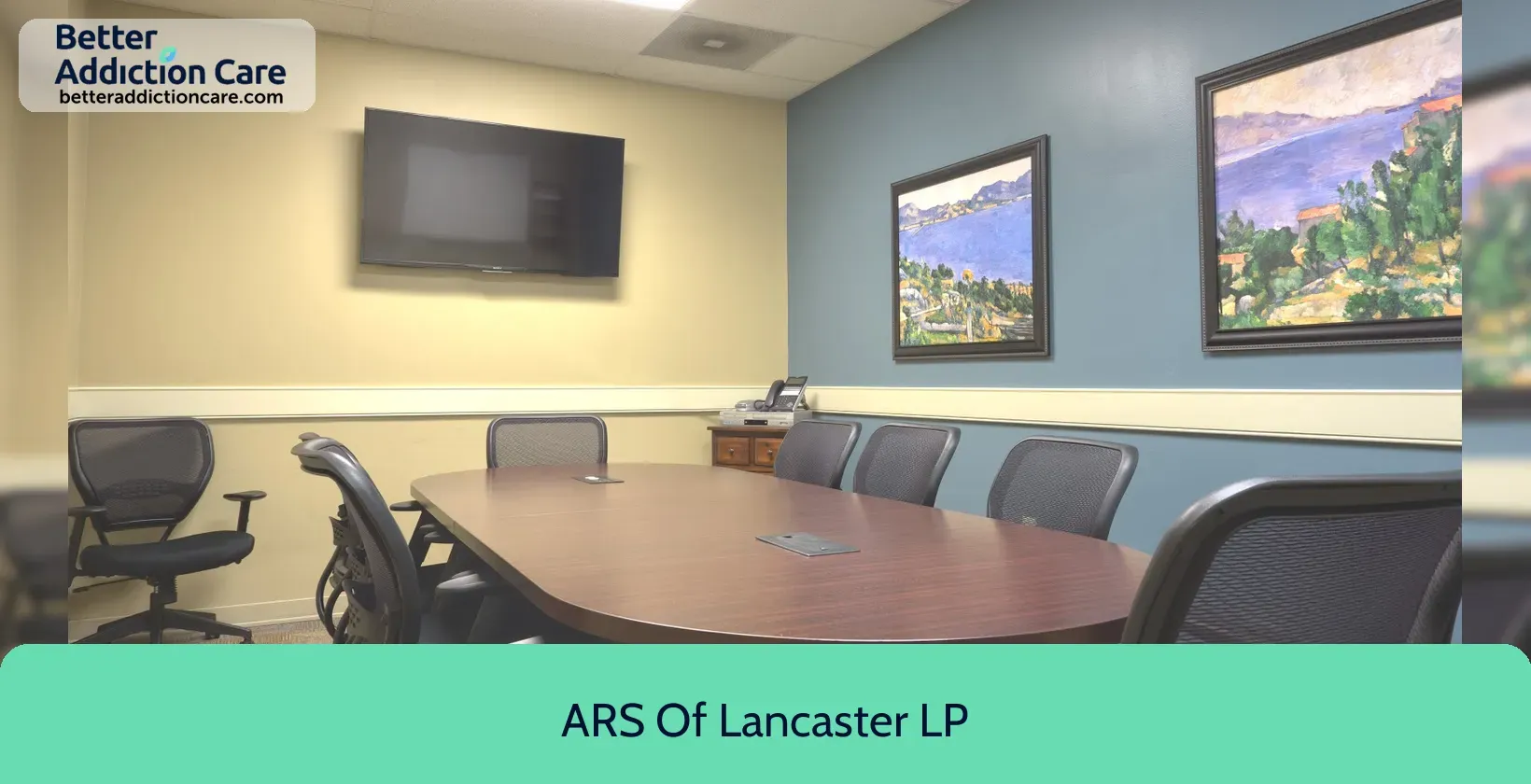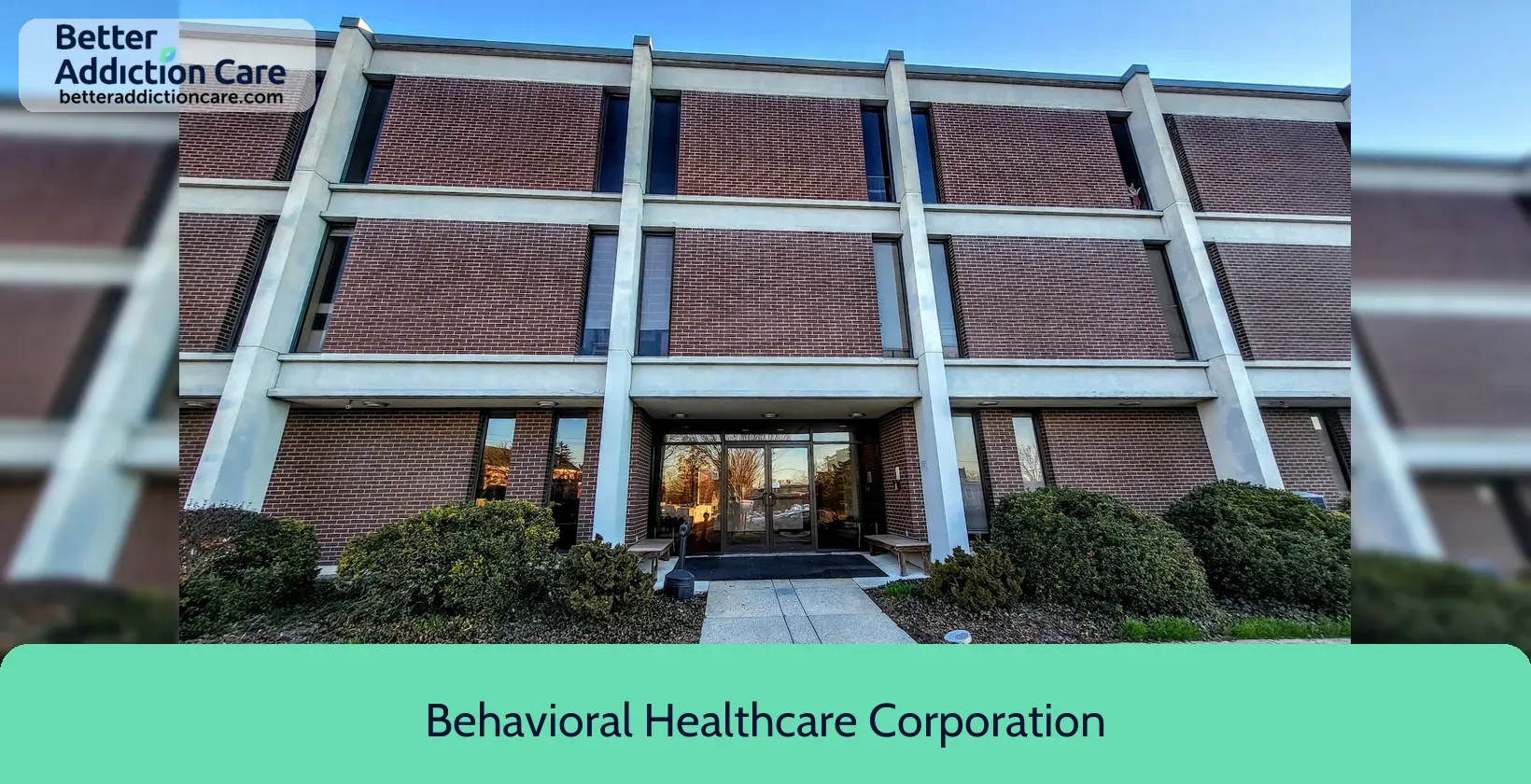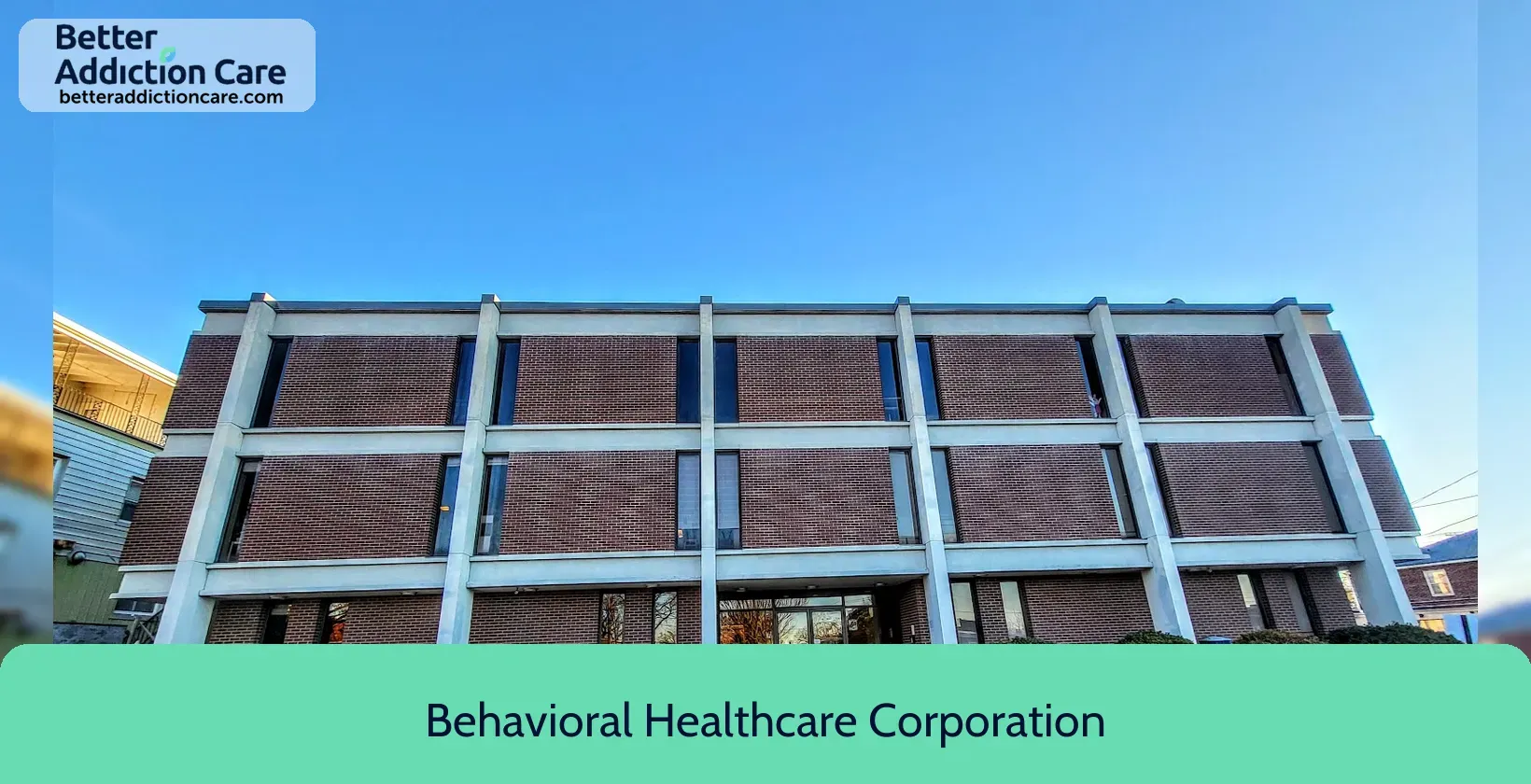Behavioral Healthcare Corporation
Overview
Behavioral Healthcare Corporation is a mental health treatment center for people seeking treatment near Lancaster County. As part of their treatment modalities for recovery, Behavioral Healthcare Corporation provides couples/family therapy, group counseling, and cognitive behavioral therapy during treatment. Behavioral Healthcare Corporation is located in Lancaster, Pennsylvania, accepting cash or self-payment for treatment.
Behavioral Healthcare Corporation at a Glance
Payment Options
- Cash or self-payment
- Medicaid
- Medicare
- Private health insurance
- State mental health agency (or equivalent) funds
Assessments
- Screening for tobacco use
- Comprehensive mental health assessment
- Comprehensive substance use assessment
Age Groups
- Children/adolescents
- Young adults
- Adults
- Seniors
Ancillary Services
- Chronic disease/illness management
- Diet and exercise counseling
- Family psychoeducation
- Illness management and recovery
- Psychosocial rehabilitation services
Highlights About Behavioral Healthcare Corporation
6.74/10
With an overall rating of 6.74/10, this facility has following balanced range of services. Alcohol Rehabilitation: 8.00/10, Drug Rehab and Detox: 6.00/10, Insurance and Payments: 6.00/10, Treatment Options: 6.97/10.-
Alcohol Rehabilitation 8.00
-
Treatment Options 6.97
-
Drug Rehab and Detox 6.00
-
Insurance and Payments 6.00
Treatment At Behavioral Healthcare Corporation
Treatment Conditions
- Mental health treatment
- Alcoholism
- Substance use treatment
- Co-occurring Disorders
Care Levels
- Outpatient
Treatment Modalities
- Couples/family therapy
- Group counseling
- Cognitive behavioral therapy
- Dialectical behavior therapy
- Integrated Mental and Substance Use Disorder treatment
Ancillary Services
Languages
- Spanish
- Other languages (excluding Spanish)
- Russian
Additional Services
- Pharmacotherapies administered during treatment
- Metabolic syndrome monitoring
Special Programs
- Persons 18 and older with serious mental illness (SMI)
Get Help Now
Common Questions About Behavioral Healthcare Corporation
Contact Information
Other Facilities in Lancaster

6.56

6.92

6.68

7.00

6.62

7.61

6.68

7.41
DISCLAIMER: The facility name, logo and brand are the property and registered trademarks of ARS Of Lancaster LP, and are being used for identification and informational purposes only. Use of these names, logos and brands shall not imply endorsement. BetterAddictionCare.com is not affiliated with or sponsored by ARS Of Lancaster LP.



